Tag #imperative
118 papers:
 PLDI-2019-PerryKSZ #clustering #named #programming #semantics
PLDI-2019-PerryKSZ #clustering #named #programming #semantics- SemCluster: clustering of imperative programming assignments based on quantitative semantic features (DMP, DK, RS, XZ), pp. 860–873.
 SAS-2019-HuSSD #source code
SAS-2019-HuSSD #source code- Direct Manipulation for Imperative Programs (QH, RS, RS, LD), pp. 347–367.
 ICST-2019-DiniYGK #automation #testing
ICST-2019-DiniYGK #automation #testing- Extension-Aware Automated Testing Based on Imperative Predicates (ND, CY, MG, SK), pp. 25–36.
 POPL-2018-PoulsenRTKV
POPL-2018-PoulsenRTKV - Intrinsically-typed definitional interpreters for imperative languages (CBP, AR, AT, RK, EV), p. 34.
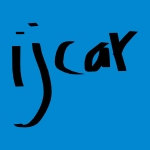 IJCAR-2018-KotelnikovKV #encoding #source code
IJCAR-2018-KotelnikovKV #encoding #source code- A FOOLish Encoding of the Next State Relations of Imperative Programs (EK, LK, AV), pp. 405–421.
 IJCAR-2018-ZhanH #complexity #source code #verification
IJCAR-2018-ZhanH #complexity #source code #verification- Verifying Asymptotic Time Complexity of Imperative Programs in Isabelle (BZ, MPLH), pp. 532–548.
- ICFP-2017-RicciottiSPC #functional #source code
- Imperative functional programs that explain their work (WR, JS, RP, JC), p. 28.
 ICMT-2017-GerkingSB #using
ICMT-2017-GerkingSB #using- Reducing the Verbosity of Imperative Model Refinements by Using General-Purpose Language Facilities (CG, DS, IB), pp. 19–34.
 SAS-2017-SoO #source code #static analysis
SAS-2017-SoO #source code #static analysis- Synthesizing Imperative Programs from Examples Guided by Static Analysis (SS, HO), pp. 364–381.
 OOPSLA-2016-AnconaC #object-oriented #semantics #type system
OOPSLA-2016-AnconaC #object-oriented #semantics #type system- Semantic subtyping for imperative object-oriented languages (DA, AC), pp. 568–587.
 PPDP-2016-AlbertAG #concurrent #testing #using
PPDP-2016-AlbertAG #concurrent #testing #using- Testing of concurrent and imperative software using CLP (EA, PA, MGZ), pp. 1–8.
 ICFP-2015-NeisHKMDV #compilation #higher-order #named
ICFP-2015-NeisHKMDV #compilation #higher-order #named- Pilsner: a compositionally verified compiler for a higher-order imperative language (GN, CKH, JOK, CM, DD, VV), pp. 166–178.
 ECMFA-2015-DiskinMC #category theory #model management #visual notation
ECMFA-2015-DiskinMC #category theory #model management #visual notation- A Model Management Imperative: Being Graphical Is Not Sufficient, You Have to Be Categorical (ZD, TSEM, KC), pp. 154–170.
 PEPM-2015-PoulsenMT #abstract interpretation #morphism #polymorphism
PEPM-2015-PoulsenMT #abstract interpretation #morphism #polymorphism- Imperative Polymorphism by Store-Based Types as Abstract Interpretations (CBP, PDM, PT), pp. 3–8.
 PLDI-2015-ChuJT #automation #induction #proving #source code
PLDI-2015-ChuJT #automation #induction #proving #source code- Automatic induction proofs of data-structures in imperative programs (DHC, JJ, MTT), pp. 457–466.
 ICLP-J-2015-AngelisFPP #correctness #horn clause #proving #source code
ICLP-J-2015-AngelisFPP #correctness #horn clause #proving #source code- Proving correctness of imperative programs by linearizing constrained Horn clauses (EDA, FF, AP, MP), pp. 635–650.
 ICEIS-v3-2014-SilvaOAL #declarative #empirical #process
ICEIS-v3-2014-SilvaOAL #declarative #empirical #process- Declarative Versus Imperative Business Process Languages — A Controlled Experiment (NCS, CALdO, FALAA, RMFL), pp. 394–401.
 OOPSLA-2014-RadoiFRS #pipes and filters
OOPSLA-2014-RadoiFRS #pipes and filters- Translating imperative code to MapReduce (CR, SJF, RMR, MS), pp. 909–927.
 POPL-2014-Birkedal #composition #concurrent #higher-order #reasoning #source code
POPL-2014-Birkedal #composition #concurrent #higher-order #reasoning #source code- Modular reasoning about concurrent higher-order imperative programs (LB), pp. 1–2.
 PPDP-2014-DouenceT #programming
PPDP-2014-DouenceT #programming- Lazier Imperative Programming (RD, NT), pp. 7–18.
 SAS-2013-Komondoor #abstract interpretation #precise #slicing #source code
SAS-2013-Komondoor #abstract interpretation #precise #slicing #source code- Precise Slicing in Imperative Programs via Term-Rewriting and Abstract Interpretation (RK), pp. 259–282.
 ESEC-FSE-2013-GyoriFDL #functional #programming #refactoring
ESEC-FSE-2013-GyoriFDL #functional #programming #refactoring- Crossing the gap from imperative to functional programming through refactoring (AG, LF, DD, JL), pp. 543–553.
 ICSE-2013-FranklinGLD #automation #functional #named #programming #refactoring
ICSE-2013-FranklinGLD #automation #functional #named #programming #refactoring- LAMBDAFICATOR: from imperative to functional programming through automated refactoring (LF, AG, JL, DD), pp. 1287–1290.
 CAV-2013-BiondiLTW #named #security
CAV-2013-BiondiLTW #named #security- QUAIL: A Quantitative Security Analyzer for Imperative Code (FB, AL, LMT, AW), pp. 702–707.
 SEFM-2012-NikolicPZ #modelling #rule-based #simulation
SEFM-2012-NikolicPZ #modelling #rule-based #simulation- A Rule-Based and Imperative Language for Biochemical Modeling and Simulation (DN, CP, RZ), pp. 16–32.
 SAS-2012-CacheraJJK #invariant #polynomial #source code
SAS-2012-CacheraJJK #invariant #polynomial #source code- Inference of Polynomial Invariants for Imperative Programs: A Farewell to Gröbner Bases (DC, TPJ, AJ, FK), pp. 58–74.
 ICSE-2012-PankratiusSG #empirical #functional #java #manycore #programming #scala
ICSE-2012-PankratiusSG #empirical #functional #java #manycore #programming #scala- Combining functional and imperative programming for multicore software: An empirical study evaluating Scala and Java (VP, FS, GG), pp. 123–133.
 SAC-2012-PriamiQZ #biology #graph #self
SAC-2012-PriamiQZ #biology #graph #self- An imperative language of self-modifying graphs for biological systems (CP, PQ, RZ), pp. 1903–1909.
 CAV-2012-LahiriHKR #named #semantics #source code
CAV-2012-LahiriHKR #named #semantics #source code- SYMDIFF: A Language-Agnostic Semantic Diff Tool for Imperative Programs (SKL, CH, MK, HR), pp. 712–717.
 ICFP-2011-Chargueraud #source code #verification
ICFP-2011-Chargueraud #source code #verification- Characteristic formulae for the verification of imperative programs (AC), pp. 418–430.
 OOPSLA-2011-DemetrescuFR #constraints #data flow #programming
OOPSLA-2011-DemetrescuFR #constraints #data flow #programming- Reactive imperative programming with dataflow constraints (CD, IF, AR), pp. 407–426.
 SAS-2011-ZulegerGSV #abstraction #analysis #bound #source code
SAS-2011-ZulegerGSV #abstraction #analysis #bound #source code- Bound Analysis of Imperative Programs with the Size-Change Abstraction (FZ, SG, MS, HV), pp. 280–297.
 ICSE-2011-MilicevicRYJ #declarative #execution
ICSE-2011-MilicevicRYJ #declarative #execution- Unifying execution of imperative and declarative code (AM, DR, KY, DJ), pp. 511–520.
 CC-2011-Axelsen #programming language
CC-2011-Axelsen #programming language- Clean Translation of an Imperative Reversible Programming Language (HBA), pp. 144–163.
 CADE-2011-WiesMK #data type #performance
CADE-2011-WiesMK #data type #performance- An Efficient Decision Procedure for Imperative Tree Data Structures (TW, MM, VK), pp. 476–491.
 LICS-2011-ChurchillLM #game studies #proving #semantics #source code
LICS-2011-ChurchillLM #game studies #proving #semantics #source code- Imperative Programs as Proofs via Game Semantics (MC, JL, GM), pp. 65–74.
 EDOC-2010-AmarLCN #aspect-oriented #programming #using
EDOC-2010-AmarLCN #aspect-oriented #programming #using- Using Aspect-Oriented Programming to Trace Imperative Transformations (BA, HL, BC, CN), pp. 143–152.
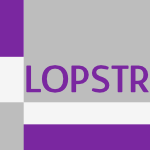 LOPSTR-2010-AlbertGRP #composition #generative #testing
LOPSTR-2010-AlbertGRP #composition #generative #testing- Compositional CLP-Based Test Data Generation for Imperative Languages (EA, MGZ, JMR, GP), pp. 99–116.
 CC-2010-IuCZ #database #named #query
CC-2010-IuCZ #database #named #query- JReq: Database Queries in Imperative Languages (MYI, EC, WZ), pp. 84–103.
 ICLP-J-2010-Gomez-ZamalloaAP #generative #object-oriented #testing
ICLP-J-2010-Gomez-ZamalloaAP #generative #object-oriented #testing- Test case generation for object-oriented imperative languages in CLP (MGZ, EA, GP), pp. 659–674.
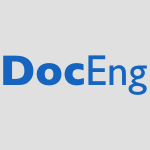 DocEng-2009-SoaresMS #declarative #hypermedia
DocEng-2009-SoaresMS #declarative #hypermedia- Relating declarative hypermedia objects and imperative objects through the NCL glue language (LFGS, MFM, FS), pp. 222–230.
 ICFP-2009-ChlipalaMMSW #effectiveness #higher-order #interactive #proving #source code
ICFP-2009-ChlipalaMMSW #effectiveness #higher-order #interactive #proving #source code- Effective interactive proofs for higher-order imperative programs (AC, JGM, GM, AS, RW), pp. 79–90.
 PLDI-2009-ZeeKR #proving #source code
PLDI-2009-ZeeKR #proving #source code- An integrated proof language for imperative programs (KZ, VK, MCR), pp. 338–351.
 DATE-2009-VecchieTS #compilation #execution
DATE-2009-VecchieTS #compilation #execution- Separate compilation and execution of imperative synchronous modules (EV, JPT, KS), pp. 1580–1583.
 CADE-2009-FalkeK #analysis #approach #automation #source code #term rewriting #termination
CADE-2009-FalkeK #analysis #approach #automation #source code #term rewriting #termination- A Term Rewriting Approach to the Automated Termination Analysis of Imperative Programs (SF, DK), pp. 277–293.
 ICFP-2008-NanevskiMSGB #dependent type #named #source code
ICFP-2008-NanevskiMSGB #dependent type #named #source code- Ynot: dependent types for imperative programs (AN, GM, AS, PG, LB), pp. 229–240.
 POPL-2008-AcarAB #self
POPL-2008-AcarAB #self- Imperative self-adjusting computation (UAA, AA, MB), pp. 309–322.
 QAPL-2008-Smith #abstract interpretation #probability #source code #using
QAPL-2008-Smith #abstract interpretation #probability #source code #using- Probabilistic Abstract Interpretation of Imperative Programs using Truncated Normal Distributions (MJAS), pp. 43–59.
 TAP-2008-VelroyenR #source code
TAP-2008-VelroyenR #source code- Non-termination Checking for Imperative Programs (HV, PR), pp. 154–170.
 SIGAda-2007-Lau #reasoning #source code #using
SIGAda-2007-Lau #reasoning #source code #using- Using SPARK for a beginner’s course on reasoning about imperative programs (KKL), pp. 75–78.
 KR-2006-Jauregui #logic #semantics
KR-2006-Jauregui #logic #semantics- Semantical Considerations for a Logic of Actions: An Imperative Manifesto (VJ), pp. 371–376.
 POPL-2006-KoutavasW #bisimulation #higher-order #reasoning #source code
POPL-2006-KoutavasW #bisimulation #higher-order #reasoning #source code- Small bisimulations for reasoning about higher-order imperative programs (VK, MW), pp. 141–152.
 ESOP-2006-KoutavasW #bisimulation
ESOP-2006-KoutavasW #bisimulation- Bisimulations for Untyped Imperative Objects (VK, MW), pp. 146–161.
 SEFM-2005-OlssonW #correctness #induction #proving #source code
SEFM-2005-OlssonW #correctness #induction #proving #source code- Customised Induction Rules for Proving Correctness of Imperative Programs (OO, AW), pp. 180–189.
 ICFP-2005-BergerHY #alias #analysis #higher-order #logic
ICFP-2005-BergerHY #alias #analysis #higher-order #logic- A logical analysis of aliasing in imperative higher-order functions (MB, KH, NY), pp. 280–293.
 ICFP-2005-WestbrookSW #approach #programming
ICFP-2005-WestbrookSW #approach #programming- A language-based approach to functionally correct imperative programming (EMW, AS, IW), pp. 268–279.
 ICEIS-v2-2005-LinhalisM #component #execution #natural language
ICEIS-v2-2005-LinhalisM #component #execution #natural language- Execution of Imperative Natural Language Requisitions Based on UNL Interlingua and Software Components (FL, DdAM), pp. 254–259.
 LICS-2005-HondaYB #higher-order #logic
LICS-2005-HondaYB #higher-order #logic- An Observationally Complete Program Logic for Imperative Higher-Order Frame Rules (KH, NY, MB), pp. 270–279.
 IFM-2004-VilasARGD #incremental #logic #modelling #semantics #specification
IFM-2004-VilasARGD #incremental #logic #modelling #semantics #specification- A Many-Valued Logic with Imperative Semantics for Incremental Specification of Timed Models (AFV, JJPA, RPDR, AGS, JGD), pp. 382–401.
 CHI-2004-SchianoES #category theory
CHI-2004-SchianoES #category theory- Categorical imperative NOT: facial affect is perceived continuously (DJS, SME, KS), pp. 49–56.
 ICEIS-v3-2004-Kanungo #ontology
ICEIS-v3-2004-Kanungo #ontology- Integrating Process- and Object-Approaches: An Ontological Imperative (SK), pp. 237–244.
 LOPSTR-2004-BossiPR #security
LOPSTR-2004-BossiPR #security- Unwinding Conditions for Security in Imperative Languages (AB, CP, SR), pp. 85–100.
 LOPSTR-2004-Colon #constraints #source code #synthesis #theorem proving
LOPSTR-2004-Colon #constraints #source code #synthesis #theorem proving- Schema-Guided Synthesis of Imperative Programs by Constraint Solving (MC), pp. 166–181.
 PEPM-2004-Debois #optimisation #partial evaluation
PEPM-2004-Debois #optimisation #partial evaluation- Imperative program optimization by partial evaluation (SD), pp. 113–122.
 PPDP-2004-LiquoriS #calculus #named
PPDP-2004-LiquoriS #calculus #named- iRho: an imperative rewriting calculus (LL, BPS), pp. 167–178.
 SAS-2004-Colon #algebra #approximate #relational #semantics #source code
SAS-2004-Colon #algebra #approximate #relational #semantics #source code- Approximating the Algebraic Relational Semantics of Imperative Programs (MC), pp. 296–311.
 SAC-J-2003-ShinjoKP04 #interface #performance
SAC-J-2003-ShinjoKP04 #interface #performance- Efficient mediators with closures for handling dynamic interfaces in an imperative language (YS, TK, CP), pp. 351–357.
 LICS-2004-NaumannB #invariant #reasoning #towards
LICS-2004-NaumannB #invariant #reasoning #towards- Towards Imperative Modules: Reasoning about Invariants and Sharing of Mutable State (DAN, MB), pp. 313–323.
 RE-2003-ChardonD #approach #metric #process #requirements
RE-2003-ChardonD #approach #metric #process #requirements- One Approach to the Metric Baselining Imperative for Requirements Processes (RC, MD), p. 292.
 PLDI-2002-FahndrichD #linear #programming
PLDI-2002-FahndrichD #linear #programming- Adoption and Focus: Practical Linear Types for Imperative Programming (MF, RD), pp. 13–24.
 ESOP-2002-Grossman
ESOP-2002-Grossman - Existential Types for Imperative Languages (DG), pp. 21–35.
 PPDP-2001-Naumann #modelling #programming #relational
PPDP-2001-Naumann #modelling #programming #relational- Ideal Models for Pointwise Relational and State-Free Imperative Programming (DAN), pp. 4–15.
 SAS-2001-BertranBCN #communication #concurrent #parallel #source code
SAS-2001-BertranBCN #communication #concurrent #parallel #source code- Communication and Parallelism Introduction and Elimination in Imperative Concurrent Programs (MB, FXB, AC, MN), pp. 20–39.
 CC-2001-LaceyM #program transformation
CC-2001-LaceyM #program transformation- Imperative Program Transformation by Rewriting (DL, OdM), pp. 52–68.
 ICALP-2000-CalcagnoMT #approach #multi #programming
ICALP-2000-CalcagnoMT #approach #multi #programming- Closed Types as a Simple Approach to Safe Imperative Multi-stage Programming (CC, EM, WT), pp. 25–36.
 SAIG-2000-CalcagnoM #multi
SAIG-2000-CalcagnoM #multi- Multi-Stage Imperative Languages: A Conservative Extension Result (CC, EM), pp. 92–107.
 LICS-2000-Xi #dependent type #programming
LICS-2000-Xi #dependent type #programming- Imperative Programming with Dependent Types (HX), pp. 375–387.
 LOPSTR-1999-PeraltaG #approach #using
LOPSTR-1999-PeraltaG #approach #using- Imperative Program Specialisation: An Approach Using CLP (JCP, JPG), pp. 102–117.
 ASE-1999-StarkI #automation #proving #synthesis #theorem proving #towards
ASE-1999-StarkI #automation #proving #synthesis #theorem proving #towards- Towards Automatic Imperative Program Synthesis Through Proof Planning (JS, AI), pp. 44–51.
 ICFP-1998-Scholz #combinator #library #monad #programming
ICFP-1998-Scholz #combinator #library #monad #programming- Imperative Streams — A Monadic Combinator Library for Synchronous Programming (ES), pp. 261–272.
 ECOOP-1998-AlagicSG #java #orthogonal
ECOOP-1998-AlagicSG #java #orthogonal- Orthogonal to the Java Imperative (SA, JS, DG), pp. 212–233.
 ECOOP-1998-BonoF #calculus #first-order
ECOOP-1998-BonoF #calculus #first-order- An Imperative, First-Order Calculus with Object Extension (VB, KF), pp. 462–497.
 LOPSTR-1998-BellotR #logic #source code #synthesis
LOPSTR-1998-BellotR #logic #source code #synthesis- Logical Synthesis of Imperative O. O. Programs (PB, BR), pp. 316–318.
 POPL-1998-AriolaS #calculus #call-by #correctness #monad
POPL-1998-AriolaS #calculus #call-by #correctness #monad- Correctness of Monadic State: An Imperative Call-by-Need Calculus (ZMA, AS), pp. 62–74.
 POPL-1998-SmithV #concurrent #data flow #multi #thread
POPL-1998-SmithV #concurrent #data flow #multi #thread- Secure Information Flow in a Multi-Threaded Imperative Language (GS, DMV), pp. 355–364.
 SAS-1998-PeraltaGS #analysis #constraints #logic programming #source code
SAS-1998-PeraltaGS #analysis #constraints #logic programming #source code- Analysis of Imperative Programs through Analysis of Constraint Logic Programs (JCP, JPG, HS), pp. 246–261.
 ESOP-1998-JayS #exclamation #functional
ESOP-1998-JayS #exclamation #functional- The Functional Imperative: Shape! (CBJ, PS), pp. 139–153.
 ICFP-1997-DussartHT
ICFP-1997-DussartHT - Type Specialization for Imperative Languages (DD, JH, PT), pp. 204–216.
 PEPM-1997-HornofN #analysis
PEPM-1997-HornofN #analysis- Accurate Binding-Time Analysis For Imperative Languages: Flow, Context, and Return Sensitivity (LH, JN), pp. 63–73.
 POPL-1997-AptS #programming
POPL-1997-AptS #programming- Search and Imperative Programming (KRA, AS), pp. 67–79.
 ASE-1997-SwardH #legacy
ASE-1997-SwardH #legacy- Extracting Objects from Legacy Imperative Code (RRS, TCH), p. 98–?.
 HPDC-1996-BotorogK #algorithm #distributed #named #performance #programming
HPDC-1996-BotorogK #algorithm #distributed #named #performance #programming- Skil: An Imperative Language with Algorithmic Skeletons for Efficient Distributed Programming (GHB, HK), pp. 243–252.
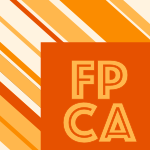 FPCA-1995-QuintonRW #functional #source code
FPCA-1995-QuintonRW #functional #source code- Deriving Imperative Code from Functional Programs (PQ, SVR, DW), pp. 36–44.
 PEPM-1995-DasRH #analysis #semantics #source code
PEPM-1995-DasRH #analysis #semantics #source code- Semantic Foundations of Binding Time Analysis for Imperative Programs (MD, TWR, PVH), pp. 100–110.
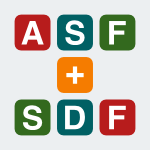 ASF+SDF-1995-Heering #algebra #source code
ASF+SDF-1995-Heering #algebra #source code- An Algebraic Machine for Imperative Programs (JH), pp. 27–28.
 ESOP-J-1994-GiegerichK95 #comparison #functional
ESOP-J-1994-GiegerichK95 #comparison #functional- A Comparison of Imperative and Purely Functional Suffix Tree Constructions (RG, SK), pp. 187–218.
 TAPSOFT-1995-AbadiC #calculus
TAPSOFT-1995-AbadiC #calculus- An Imperative Object Calculus (MA, LC), pp. 471–485.
 ILPS-1995-Wadler #how
ILPS-1995-Wadler #how- How to Declare an Imperative (PW), pp. 18–32.
 OOPSLA-1994-LopezFB #constraints #implementation #programming language #virtual machine
OOPSLA-1994-LopezFB #constraints #implementation #programming language #virtual machine- Implementing Constraint Imperative Programming Languages: The Kaleidospace’93 Virtual Machine (GL, BNFB, AB), pp. 259–271.
 PLDI-1993-Bourdoncle #debugging #higher-order
PLDI-1993-Bourdoncle #debugging #higher-order- Abstract Debugging of Higher-Order Imperative Languages (FB), pp. 46–55.
 PLILP-1993-JourdanLMR #declarative
PLILP-1993-JourdanLMR #declarative- Embedding Declarative Subprograms into Imperative Constructs (MJ, FL, FM, PR), pp. 414–415.
 POPL-1993-JonesW #functional #programming
POPL-1993-JonesW #functional #programming- Imperative Functional Programming (SLPJ, PW), pp. 71–84.
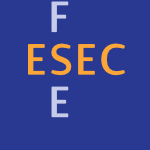 ESEC-1993-Bourdoncle #abstract interpretation #debugging #source code
ESEC-1993-Bourdoncle #abstract interpretation #debugging #source code- Assertion-based Debugging of Imperative Programs by Abstract Interpretation (FB), pp. 501–516.
 PDP-1993-KindlerNS #parallel #source code
PDP-1993-KindlerNS #parallel #source code- Hierarchical parallelization of imperative programs (AK, TN, BS), pp. 178–184.
 CAV-1993-Gordon #source code #verification
CAV-1993-Gordon #source code #verification- A Verifier and Timing Analyser for Simple Imperative Programs (MJCG), p. 320.
 PEPM-1992-Field #program analysis #semantics #source code
PEPM-1992-Field #program analysis #semantics #source code- A Simple Rewriting Semantics for Realistic Imperative Programs and its Application to Program Analysis (JF), pp. 98–107.
 PLDI-1992-HendrenHN #abstraction #analysis #data type #pointer #recursion #source code
PLDI-1992-HendrenHN #abstraction #analysis #data type #pointer #recursion #source code- Abstractions for Recursive Pointer Data Structures: Improving the Analysis of Imperative Programs (LJH, JH, AN), pp. 249–260.
 POPL-1992-NirkheP #partial evaluation #programming language #realtime
POPL-1992-NirkheP #partial evaluation #programming language #realtime- Partial Evaluation of High-Level Imperative Programming Languages, with Applications in Hard Real-Time Systems (VN, WP), pp. 269–280.
 PEPM-1991-Meyer #partial evaluation
PEPM-1991-Meyer #partial evaluation- Techniques for Partial Evaluation of Imperative Languages (UM), pp. 94–105.
 PLILP-1991-GrahamK #functional
PLILP-1991-GrahamK #functional- Domesticating Imperative Constructs So That They Can Live in a Functional World (TCNG, GK), pp. 51–62.
 OOPSLA-ECOOP-1990-Freeman-Benson #constraints #named #programming
OOPSLA-ECOOP-1990-Freeman-Benson #constraints #named #programming- Kaleidoscope: Mixing Objects, Constraints and Imperative Programming (BNFB), pp. 77–88.
 PLDI-1990-BallanceMO #dependence #representation #web
PLDI-1990-BallanceMO #dependence #representation #web- The Program Dependence Web: A Representation Supporting Control, Data, and Demand-Driven Interpretation of Imperative Languages (RAB, ABM, KJO), pp. 257–271.
 CC-1990-ShahmehriF #algorithm #debugging
CC-1990-ShahmehriF #algorithm #debugging- Algorithmic Debugging for Imperative Languages with Side-Effects (NS, PF), pp. 226–227.
 PLDI-1988-PlebanL #automation #compilation #programming language
PLDI-1988-PlebanL #automation #compilation #programming language- An Automatically Generated, Realistic Compiler for an Imperative Programming Language (UFP, PL), pp. 222–232.
 CFLP-1987-Thomas #algebra #data type #implementation #programming language
CFLP-1987-Thomas #algebra #data type #implementation #programming language- Implementing Algebraically Specified Abstract Data Types in an Imperative Programming Language (MT), pp. 197–211.
 LICS-1987-Goerdt #hoare #logic
LICS-1987-Goerdt #hoare #logic- Hoare Logic for λ-Terms as Basis of Hoare Logic for Imperative Languages (AG), pp. 293–299.
 LFP-1986-GiffordL #functional #programming
LFP-1986-GiffordL #functional #programming- Integrating Functional and Imperative Programming (DKG, JML), pp. 28–38.
 POPL-1985-Leivant #logic #reasoning #source code
POPL-1985-Leivant #logic #reasoning #source code- Logical and Mathematical Reasoning about Imperative Programs (DL), pp. 132–140.
 PLDI-2019-PerryKSZ #clustering #named #programming #semantics
PLDI-2019-PerryKSZ #clustering #named #programming #semantics SAS-2019-HuSSD #source code
SAS-2019-HuSSD #source code ICST-2019-DiniYGK #automation #testing
ICST-2019-DiniYGK #automation #testing POPL-2018-PoulsenRTKV
POPL-2018-PoulsenRTKV  IJCAR-2018-KotelnikovKV #encoding #source code
IJCAR-2018-KotelnikovKV #encoding #source code IJCAR-2018-ZhanH #complexity #source code #verification
IJCAR-2018-ZhanH #complexity #source code #verification ICMT-2017-GerkingSB #using
ICMT-2017-GerkingSB #using SAS-2017-SoO #source code #static analysis
SAS-2017-SoO #source code #static analysis OOPSLA-2016-AnconaC #object-oriented #semantics #type system
OOPSLA-2016-AnconaC #object-oriented #semantics #type system PPDP-2016-AlbertAG #concurrent #testing #using
PPDP-2016-AlbertAG #concurrent #testing #using ICFP-2015-NeisHKMDV #compilation #higher-order #named
ICFP-2015-NeisHKMDV #compilation #higher-order #named ECMFA-2015-DiskinMC #category theory #model management #visual notation
ECMFA-2015-DiskinMC #category theory #model management #visual notation PEPM-2015-PoulsenMT #abstract interpretation #morphism #polymorphism
PEPM-2015-PoulsenMT #abstract interpretation #morphism #polymorphism PLDI-2015-ChuJT #automation #induction #proving #source code
PLDI-2015-ChuJT #automation #induction #proving #source code ICLP-J-2015-AngelisFPP #correctness #horn clause #proving #source code
ICLP-J-2015-AngelisFPP #correctness #horn clause #proving #source code ICEIS-v3-2014-SilvaOAL #declarative #empirical #process
ICEIS-v3-2014-SilvaOAL #declarative #empirical #process OOPSLA-2014-RadoiFRS #pipes and filters
OOPSLA-2014-RadoiFRS #pipes and filters POPL-2014-Birkedal #composition #concurrent #higher-order #reasoning #source code
POPL-2014-Birkedal #composition #concurrent #higher-order #reasoning #source code PPDP-2014-DouenceT #programming
PPDP-2014-DouenceT #programming SAS-2013-Komondoor #abstract interpretation #precise #slicing #source code
SAS-2013-Komondoor #abstract interpretation #precise #slicing #source code ESEC-FSE-2013-GyoriFDL #functional #programming #refactoring
ESEC-FSE-2013-GyoriFDL #functional #programming #refactoring ICSE-2013-FranklinGLD #automation #functional #named #programming #refactoring
ICSE-2013-FranklinGLD #automation #functional #named #programming #refactoring CAV-2013-BiondiLTW #named #security
CAV-2013-BiondiLTW #named #security SEFM-2012-NikolicPZ #modelling #rule-based #simulation
SEFM-2012-NikolicPZ #modelling #rule-based #simulation SAS-2012-CacheraJJK #invariant #polynomial #source code
SAS-2012-CacheraJJK #invariant #polynomial #source code ICSE-2012-PankratiusSG #empirical #functional #java #manycore #programming #scala
ICSE-2012-PankratiusSG #empirical #functional #java #manycore #programming #scala SAC-2012-PriamiQZ #biology #graph #self
SAC-2012-PriamiQZ #biology #graph #self CAV-2012-LahiriHKR #named #semantics #source code
CAV-2012-LahiriHKR #named #semantics #source code ICFP-2011-Chargueraud #source code #verification
ICFP-2011-Chargueraud #source code #verification OOPSLA-2011-DemetrescuFR #constraints #data flow #programming
OOPSLA-2011-DemetrescuFR #constraints #data flow #programming SAS-2011-ZulegerGSV #abstraction #analysis #bound #source code
SAS-2011-ZulegerGSV #abstraction #analysis #bound #source code ICSE-2011-MilicevicRYJ #declarative #execution
ICSE-2011-MilicevicRYJ #declarative #execution CC-2011-Axelsen #programming language
CC-2011-Axelsen #programming language CADE-2011-WiesMK #data type #performance
CADE-2011-WiesMK #data type #performance LICS-2011-ChurchillLM #game studies #proving #semantics #source code
LICS-2011-ChurchillLM #game studies #proving #semantics #source code EDOC-2010-AmarLCN #aspect-oriented #programming #using
EDOC-2010-AmarLCN #aspect-oriented #programming #using LOPSTR-2010-AlbertGRP #composition #generative #testing
LOPSTR-2010-AlbertGRP #composition #generative #testing CC-2010-IuCZ #database #named #query
CC-2010-IuCZ #database #named #query ICLP-J-2010-Gomez-ZamalloaAP #generative #object-oriented #testing
ICLP-J-2010-Gomez-ZamalloaAP #generative #object-oriented #testing DocEng-2009-SoaresMS #declarative #hypermedia
DocEng-2009-SoaresMS #declarative #hypermedia ICFP-2009-ChlipalaMMSW #effectiveness #higher-order #interactive #proving #source code
ICFP-2009-ChlipalaMMSW #effectiveness #higher-order #interactive #proving #source code PLDI-2009-ZeeKR #proving #source code
PLDI-2009-ZeeKR #proving #source code DATE-2009-VecchieTS #compilation #execution
DATE-2009-VecchieTS #compilation #execution CADE-2009-FalkeK #analysis #approach #automation #source code #term rewriting #termination
CADE-2009-FalkeK #analysis #approach #automation #source code #term rewriting #termination ICFP-2008-NanevskiMSGB #dependent type #named #source code
ICFP-2008-NanevskiMSGB #dependent type #named #source code POPL-2008-AcarAB #self
POPL-2008-AcarAB #self QAPL-2008-Smith #abstract interpretation #probability #source code #using
QAPL-2008-Smith #abstract interpretation #probability #source code #using TAP-2008-VelroyenR #source code
TAP-2008-VelroyenR #source code SIGAda-2007-Lau #reasoning #source code #using
SIGAda-2007-Lau #reasoning #source code #using KR-2006-Jauregui #logic #semantics
KR-2006-Jauregui #logic #semantics POPL-2006-KoutavasW #bisimulation #higher-order #reasoning #source code
POPL-2006-KoutavasW #bisimulation #higher-order #reasoning #source code ESOP-2006-KoutavasW #bisimulation
ESOP-2006-KoutavasW #bisimulation SEFM-2005-OlssonW #correctness #induction #proving #source code
SEFM-2005-OlssonW #correctness #induction #proving #source code ICFP-2005-BergerHY #alias #analysis #higher-order #logic
ICFP-2005-BergerHY #alias #analysis #higher-order #logic ICFP-2005-WestbrookSW #approach #programming
ICFP-2005-WestbrookSW #approach #programming ICEIS-v2-2005-LinhalisM #component #execution #natural language
ICEIS-v2-2005-LinhalisM #component #execution #natural language LICS-2005-HondaYB #higher-order #logic
LICS-2005-HondaYB #higher-order #logic IFM-2004-VilasARGD #incremental #logic #modelling #semantics #specification
IFM-2004-VilasARGD #incremental #logic #modelling #semantics #specification CHI-2004-SchianoES #category theory
CHI-2004-SchianoES #category theory ICEIS-v3-2004-Kanungo #ontology
ICEIS-v3-2004-Kanungo #ontology LOPSTR-2004-BossiPR #security
LOPSTR-2004-BossiPR #security LOPSTR-2004-Colon #constraints #source code #synthesis #theorem proving
LOPSTR-2004-Colon #constraints #source code #synthesis #theorem proving PEPM-2004-Debois #optimisation #partial evaluation
PEPM-2004-Debois #optimisation #partial evaluation PPDP-2004-LiquoriS #calculus #named
PPDP-2004-LiquoriS #calculus #named SAS-2004-Colon #algebra #approximate #relational #semantics #source code
SAS-2004-Colon #algebra #approximate #relational #semantics #source code SAC-J-2003-ShinjoKP04 #interface #performance
SAC-J-2003-ShinjoKP04 #interface #performance LICS-2004-NaumannB #invariant #reasoning #towards
LICS-2004-NaumannB #invariant #reasoning #towards RE-2003-ChardonD #approach #metric #process #requirements
RE-2003-ChardonD #approach #metric #process #requirements PLDI-2002-FahndrichD #linear #programming
PLDI-2002-FahndrichD #linear #programming ESOP-2002-Grossman
ESOP-2002-Grossman  PPDP-2001-Naumann #modelling #programming #relational
PPDP-2001-Naumann #modelling #programming #relational SAS-2001-BertranBCN #communication #concurrent #parallel #source code
SAS-2001-BertranBCN #communication #concurrent #parallel #source code CC-2001-LaceyM #program transformation
CC-2001-LaceyM #program transformation ICALP-2000-CalcagnoMT #approach #multi #programming
ICALP-2000-CalcagnoMT #approach #multi #programming SAIG-2000-CalcagnoM #multi
SAIG-2000-CalcagnoM #multi LICS-2000-Xi #dependent type #programming
LICS-2000-Xi #dependent type #programming LOPSTR-1999-PeraltaG #approach #using
LOPSTR-1999-PeraltaG #approach #using ASE-1999-StarkI #automation #proving #synthesis #theorem proving #towards
ASE-1999-StarkI #automation #proving #synthesis #theorem proving #towards ICFP-1998-Scholz #combinator #library #monad #programming
ICFP-1998-Scholz #combinator #library #monad #programming ECOOP-1998-AlagicSG #java #orthogonal
ECOOP-1998-AlagicSG #java #orthogonal ECOOP-1998-BonoF #calculus #first-order
ECOOP-1998-BonoF #calculus #first-order LOPSTR-1998-BellotR #logic #source code #synthesis
LOPSTR-1998-BellotR #logic #source code #synthesis POPL-1998-AriolaS #calculus #call-by #correctness #monad
POPL-1998-AriolaS #calculus #call-by #correctness #monad POPL-1998-SmithV #concurrent #data flow #multi #thread
POPL-1998-SmithV #concurrent #data flow #multi #thread SAS-1998-PeraltaGS #analysis #constraints #logic programming #source code
SAS-1998-PeraltaGS #analysis #constraints #logic programming #source code ESOP-1998-JayS #exclamation #functional
ESOP-1998-JayS #exclamation #functional ICFP-1997-DussartHT
ICFP-1997-DussartHT  PEPM-1997-HornofN #analysis
PEPM-1997-HornofN #analysis POPL-1997-AptS #programming
POPL-1997-AptS #programming ASE-1997-SwardH #legacy
ASE-1997-SwardH #legacy HPDC-1996-BotorogK #algorithm #distributed #named #performance #programming
HPDC-1996-BotorogK #algorithm #distributed #named #performance #programming FPCA-1995-QuintonRW #functional #source code
FPCA-1995-QuintonRW #functional #source code PEPM-1995-DasRH #analysis #semantics #source code
PEPM-1995-DasRH #analysis #semantics #source code ASF+SDF-1995-Heering #algebra #source code
ASF+SDF-1995-Heering #algebra #source code ESOP-J-1994-GiegerichK95 #comparison #functional
ESOP-J-1994-GiegerichK95 #comparison #functional TAPSOFT-1995-AbadiC #calculus
TAPSOFT-1995-AbadiC #calculus ILPS-1995-Wadler #how
ILPS-1995-Wadler #how OOPSLA-1994-LopezFB #constraints #implementation #programming language #virtual machine
OOPSLA-1994-LopezFB #constraints #implementation #programming language #virtual machine PLDI-1993-Bourdoncle #debugging #higher-order
PLDI-1993-Bourdoncle #debugging #higher-order PLILP-1993-JourdanLMR #declarative
PLILP-1993-JourdanLMR #declarative POPL-1993-JonesW #functional #programming
POPL-1993-JonesW #functional #programming ESEC-1993-Bourdoncle #abstract interpretation #debugging #source code
ESEC-1993-Bourdoncle #abstract interpretation #debugging #source code PDP-1993-KindlerNS #parallel #source code
PDP-1993-KindlerNS #parallel #source code CAV-1993-Gordon #source code #verification
CAV-1993-Gordon #source code #verification PEPM-1992-Field #program analysis #semantics #source code
PEPM-1992-Field #program analysis #semantics #source code PLDI-1992-HendrenHN #abstraction #analysis #data type #pointer #recursion #source code
PLDI-1992-HendrenHN #abstraction #analysis #data type #pointer #recursion #source code POPL-1992-NirkheP #partial evaluation #programming language #realtime
POPL-1992-NirkheP #partial evaluation #programming language #realtime PEPM-1991-Meyer #partial evaluation
PEPM-1991-Meyer #partial evaluation PLILP-1991-GrahamK #functional
PLILP-1991-GrahamK #functional OOPSLA-ECOOP-1990-Freeman-Benson #constraints #named #programming
OOPSLA-ECOOP-1990-Freeman-Benson #constraints #named #programming PLDI-1990-BallanceMO #dependence #representation #web
PLDI-1990-BallanceMO #dependence #representation #web CC-1990-ShahmehriF #algorithm #debugging
CC-1990-ShahmehriF #algorithm #debugging PLDI-1988-PlebanL #automation #compilation #programming language
PLDI-1988-PlebanL #automation #compilation #programming language CFLP-1987-Thomas #algebra #data type #implementation #programming language
CFLP-1987-Thomas #algebra #data type #implementation #programming language LICS-1987-Goerdt #hoare #logic
LICS-1987-Goerdt #hoare #logic LFP-1986-GiffordL #functional #programming
LFP-1986-GiffordL #functional #programming POPL-1985-Leivant #logic #reasoning #source code
POPL-1985-Leivant #logic #reasoning #source code











